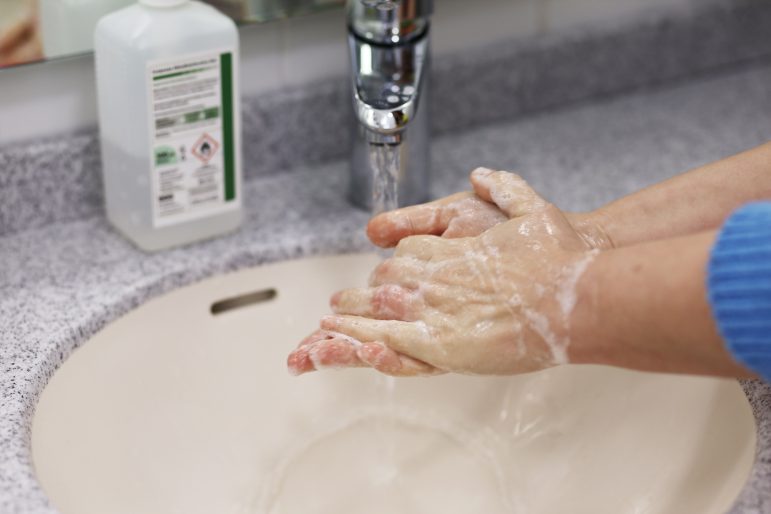In a recent global hygiene study, Dyson looked at how attitudes towards public washrooms and general hand hygiene have changed since the COVID-19 pandemic.
As the world continues to be disrupted by the COVID-19 pandemic and behaviours within public spaces change, Dyson investigates attitudes towards public washrooms and general hand hygiene.
Throughout the pandemic, the message from leading organizations such as the WHO has been clearly focused on the importance of frequently washing your hands properly and the vital role thoroughly dry hands play. Experts have noted that hands can transfer germs if not washed correctly and that practising good hand hygiene is one of the most effective ways to reduce the spread of bacteria and viruses, which could lead to infection.
Results from the Dyson global study show that while people are more conscious of the importance of hand hygiene since the pandemic started, 8% of Canadians still admit that they are more likely to leave the washroom without washing their hands and 46% of people feel more concerned visiting a public washroom compared to this time last year.
Hands up for hygiene
The study also found that while respondents were concerned with hand hygiene, some still disregard the importance of hand washing and drying, leading health organizations to stipulate you must wash your hands frequently with water and soap for at least 20 seconds – as well as dry your hands properly. The study revealed that since the outbreak, only 34% of people gave hygiene considerations as their main purpose for drying their hands; for some it was just a habit (16%) while a small number like the feel of clean hands (13%). However, it also found that if the washroom has no working hand dryers or paper towels, some respondents were likely let them dry naturally (32%) or dry them on their pants or top (19%).
Dr Salome Giao, Senior Microbiologist and Scientist at Dyson explains, “These results highlight the need for further education on hand hygiene. We know damp hands can transfer up to 1000 times more bacteria than dry hands, while wiping hands on clothes can jeopardise the hand washing process, as they can add bacteria
to the washed hands if they are not clean.”
Look, but don’t touch
The global study also revealed that poorly maintained washrooms can cause people to feel frustrated. When it comes to public washrooms, the main frustrations for Canadians are unclean toilets (70%), lack of toilet paper (56%) and unclean washroom common areas (49%). Comparing to the same time last year, there was a portion of people who were more concerned around using hand dryers but some of the biggest hygiene
concerns related to using hand dryers were having to press physical buttons (42%) and drying hands with unclean air (27%).
63% of Canadians selected touchless activation of a hand dryer as one of the features which would put their mind at ease when using a hand dryer, and a further 44% stated that including filters, which clean the air used to dry their hands would also ease their concerns when using a hand dryer.
SOURCE: DYSON CANADA









